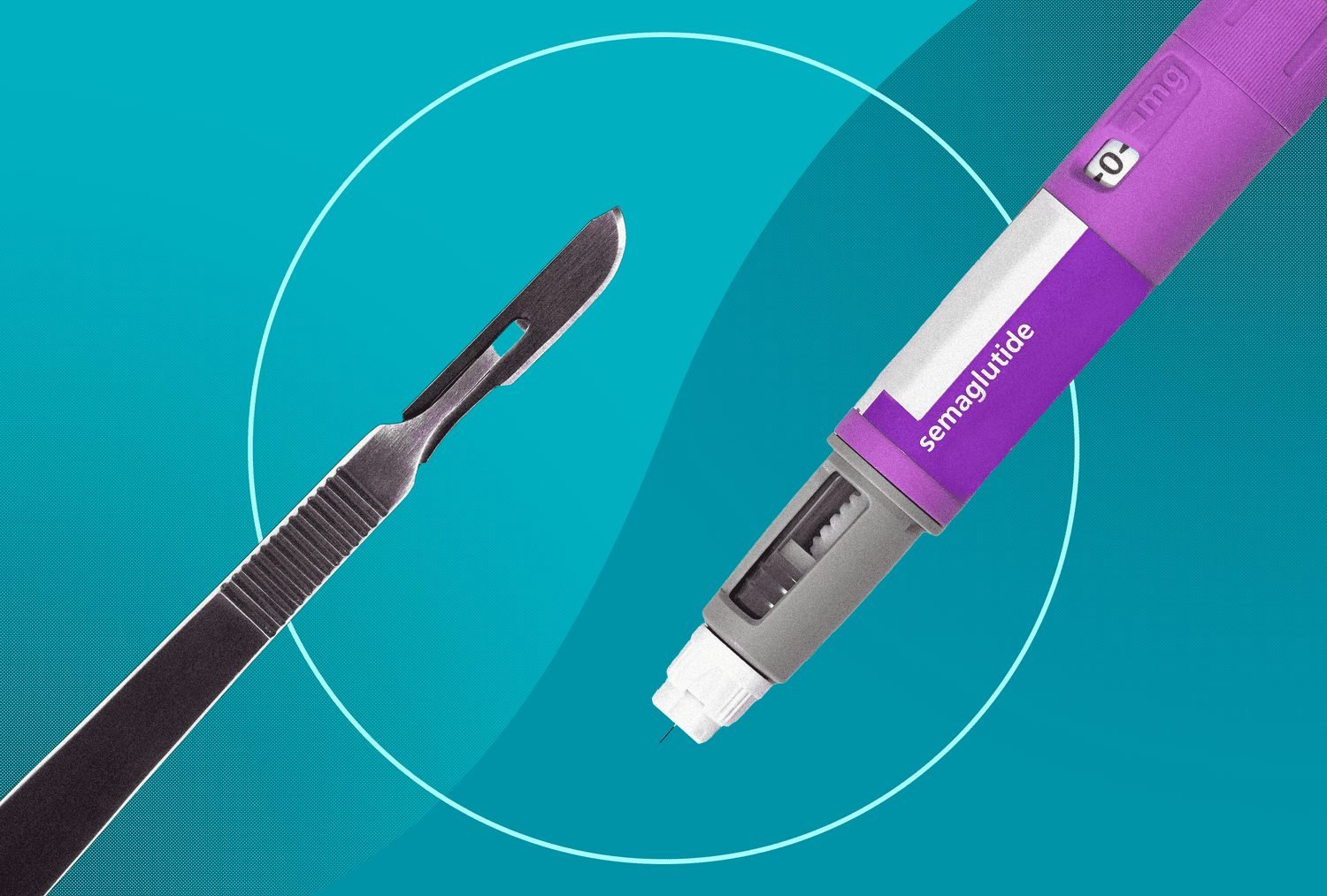With the rising prevalence of obesity worldwide, more people are turning to medically supported interventions for sustainable weight loss. Among the most talked-about options are bariatric (weight loss) surgeries and GLP-1 weight loss medications like Ozempic, Wegovy or Mounjaro. But how do they compare? Is Ozempic a better choice than surgery, or vice versa? And which one offers better long-term value, safety, and effectiveness?
At Body Genesis Institute, we understand how deeply personal and complex this decision can be. This blog explores the differences, benefits, risks, and long-term impacts of these two powerful weight loss tools to help you make an informed choice.
What Is Better for Weight Loss – Ozempic or Bariatric Surgery?
Both options can lead to substantial weight loss, but they operate differently:
- Ozempic (semaglutide) is a once-weekly injectable medication originally used to treat type 2 diabetes but now widely prescribed off-label for weight loss. It works by suppressing appetite and slowing gastric emptying.
- Bariatric surgery, such as gastric bypass or sleeve gastrectomy, physically alters your digestive system to limit food intake and/or nutrient absorption.
Comparative Outcomes:
- Clinical trials show that Ozempic users can lose an average of 10–15% of their body weight with timeline over 12–18 months.
- In contrast, bariatric surgery patients can lose 25–35% or more of their total body weight, often within a 6–12 months.
Are Weight Loss Medications Better Than Bariatric Surgery?
Better depends on your health goals, BMI, underlying conditions, and your commitment to long-term lifestyle changes.
Weight loss medications like Ozempic may be better if:
- Your BMI is between 27–35 with obesity-related conditions.
- You prefer a non-invasive approach.
- You’re looking for short- to mid-term weight control.
Bariatric surgery may be better if:
- Your BMI is over 40 or over 35 with multiple comorbidities.
- You’ve tried medications without success.
- You want a long-term solution backed by decades of data.
Important: Weight regain is more likely after stopping Ozempic unless it’s combined with long-term lifestyle modification. Surgery has stronger long-term data in maintaining weight loss.
What Factors Should I Consider Before Choosing?
Here are some critical decision-making points:
- BMI and Medical History
Your current health status determines eligibility. For example, bariatric surgery requires certain BMI thresholds and medical evaluations. - Sustainability
Medications like Ozempic must be taken long-term. Once stopped, many patients regain the lost weight. - Cost and Insurance
Surgery has a higher upfront cost but may offer better long-term savings. - Lifestyle Readiness
Surgery requires long-term dietary changes and vitamin supplementation. Medications are easier to start, but still demand discipline.
Which Option Can Save Me Money in the Long Term?
While Ozempic might seem cheaper month to month, the costs add up:
- Ozempic costs range from $300 to $1,000/month, and not all insurance plans cover it. You have to front this cost from your savings and cannot access your Super.
- Bariatric surgery costs range from $15,000 to $25,000 but may be covered fully or partially by insurance, or you can access your Super for this.
In the long run, surgery often proves more cost-effective, especially when factoring in reduced healthcare expenses from improved metabolic health.
Who Should Not Use Ozempic?
Ozempic is not suitable for everyone. You should avoid Ozempic if you have:
- A personal or family history of medullary thyroid carcinoma.
- Multiple Endocrine Neoplasia syndrome type 2 (MEN 2).
- Severe gastrointestinal diseases like gastroparesis.
- Known hypersensitivity to semaglutide.
Always consult a bariatric physician or endocrinologist before starting any weight loss medication.
Do You Lose Belly Fat on Ozempic?
Yes, Ozempic has been shown to reduce visceral fat, including belly fat, due to its impact on insulin sensitivity and calorie intake. However, the degree of fat loss varies between individuals and depends on continued medication use and diet adherence.
What Is the “Ozempic Face”?
“Ozempic Face” is a term coined by cosmetic surgeons and dermatologists referring to the facial volume loss some people experience due to rapid weight loss. This can cause the face to appear hollow, aged, or gaunt.
While this isn’t exclusive to Ozempic (it can happen with any significant weight loss), it has been notably observed in those on GLP-1 medications.
Bariatric Surgery or Ozempic – A Summary Table
| Feature | Ozempic | Bariatric Surgery |
| Average Weight Loss | 10–15% body weight | 25–35%+ body weight |
| Invasiveness | Non-invasive | Surgical procedure |
| Cost | $300–$1,000/month (ongoing) | 25–35%+ body weight |
| Long-Term Maintenance | Requires ongoing use | Permanent change |
| Eligibility | BMI ≥27 with comorbidities | BMI ≥35 with comorbidities or BMI ≥40 |
| Side Effects | GI issues, fatigue, “Ozempic face” | Surgical risks, nutrient deficiencies |
Final Thoughts: Which Is Right for You?
There is no one-size-fits-all answer when it comes to Ozempic vs bariatric surgery. Your choice should be guided by your health status, goals, and willingness to commit to lifestyle changes.
At Body Genesis Institute, we provide comprehensive assessments and tailored treatment plans that combine the best of modern medicine with long-term support. Whether you’re considering sleeve gastrectomy, gastric bypass, or weight loss medications, our team is here to walk you through every step.
Both Ozempic and bariatric surgery offer effective tools for tackling obesity. While Ozempic might appeal to those wanting a non-invasive solution, bariatric surgery offers a proven, long-term impact with broader health benefits. Choosing between them is a personal decision, one best made with trusted medical guidance.
At Body Genesis Institute, we believe in providing a holistic, whole-person evidence-based approach to our patients. Why not book an appointment with one of our friendly Bariatric Medical Doctors to discuss your options further?
















